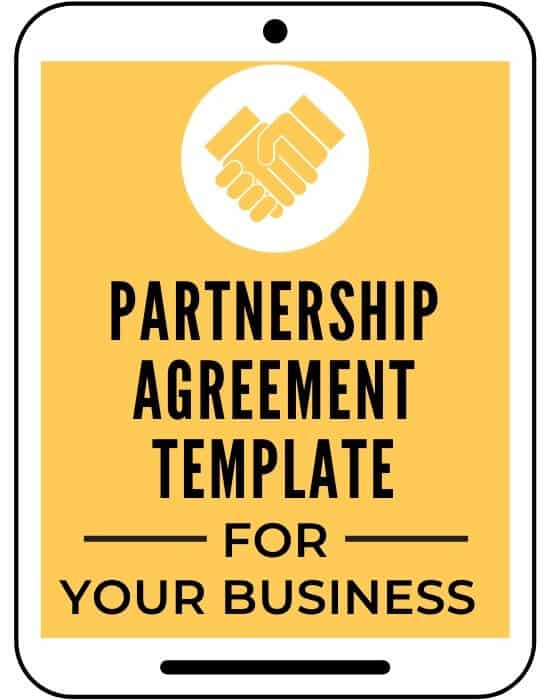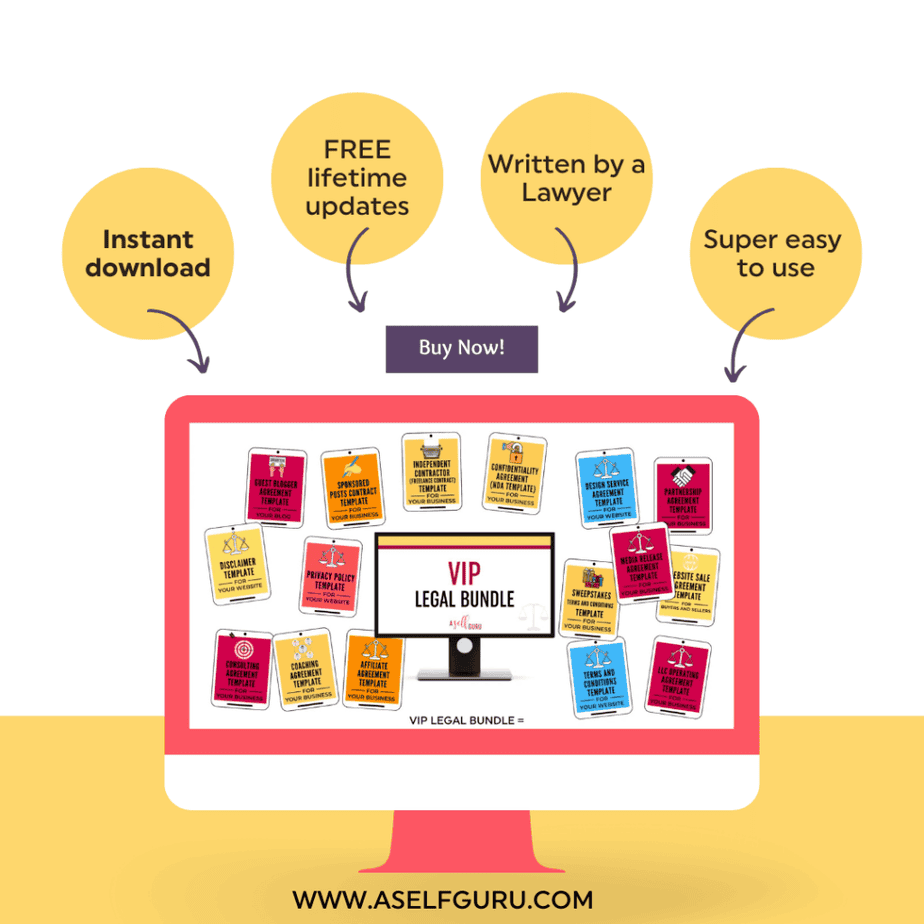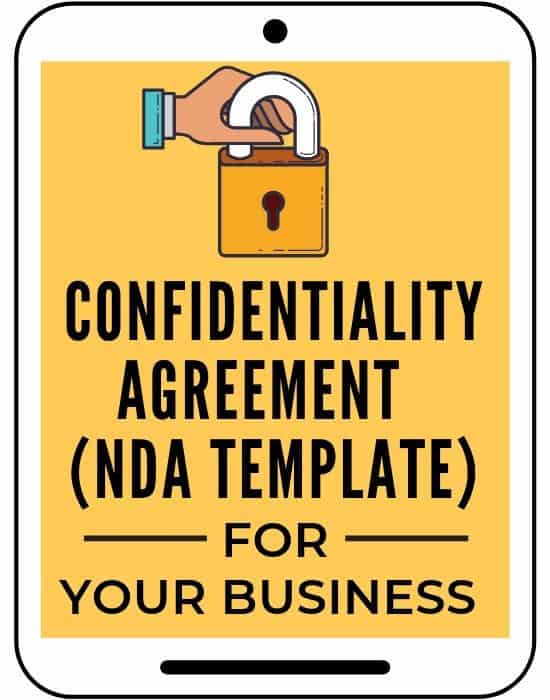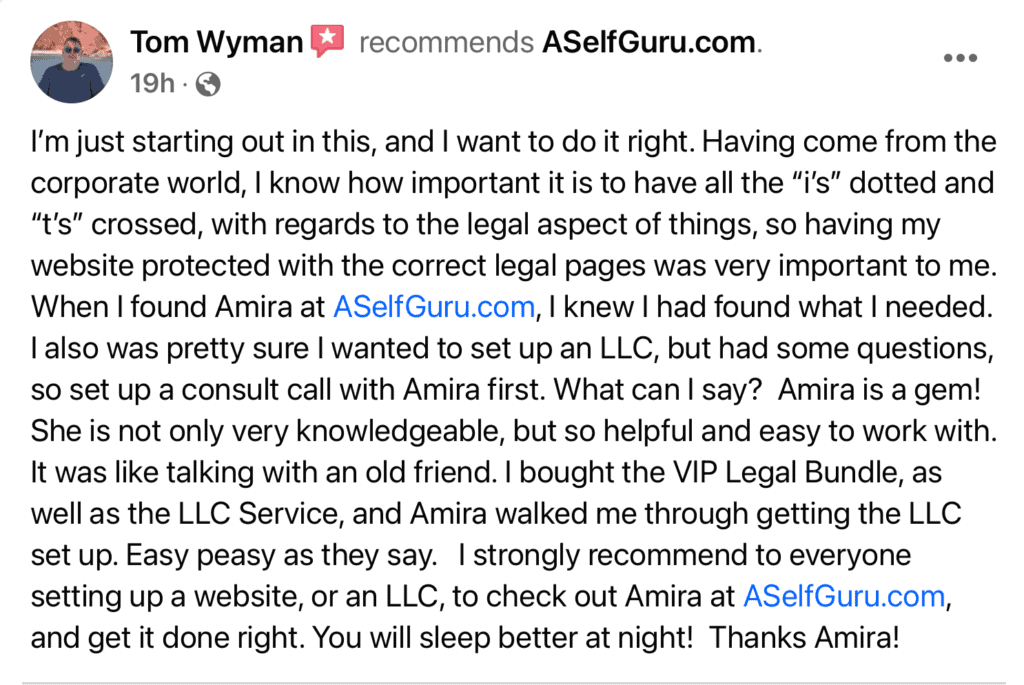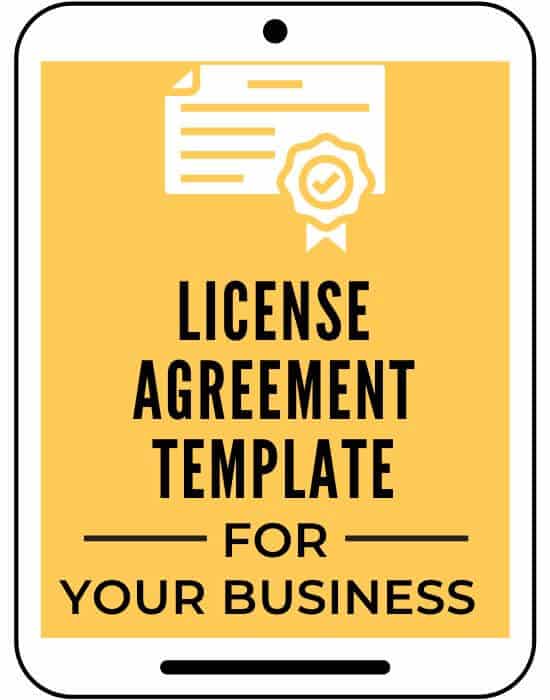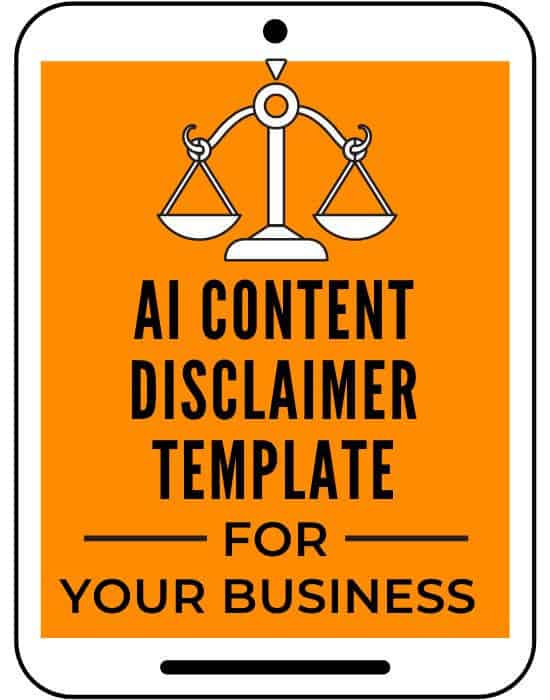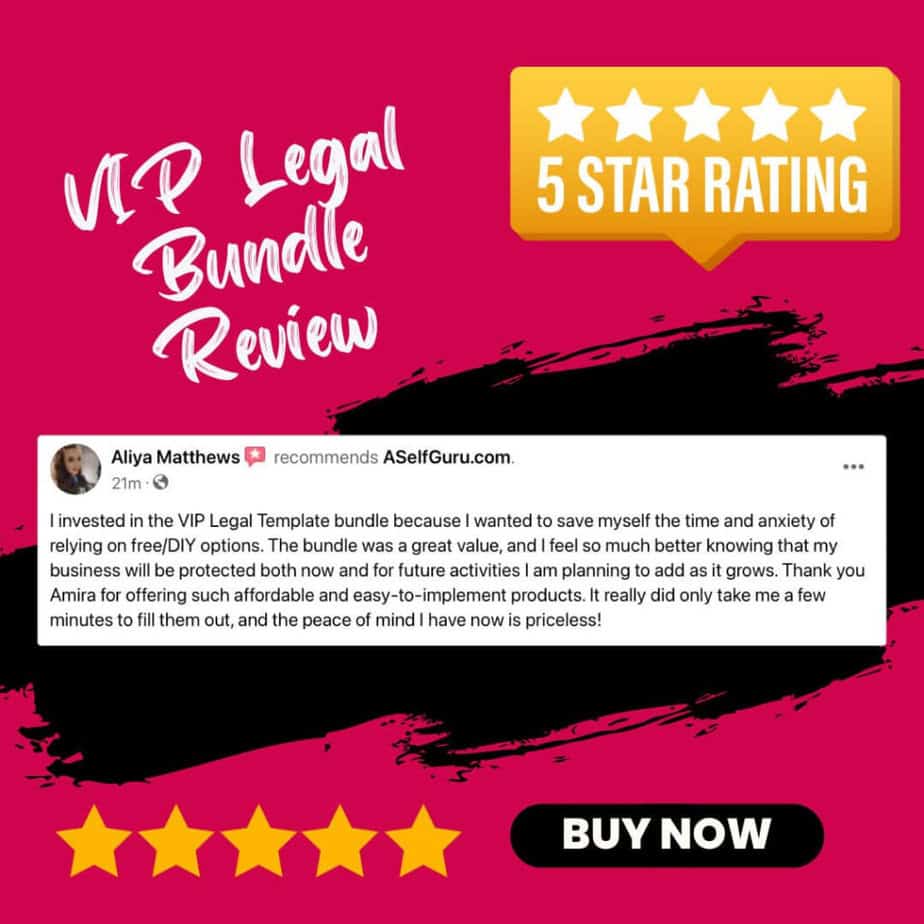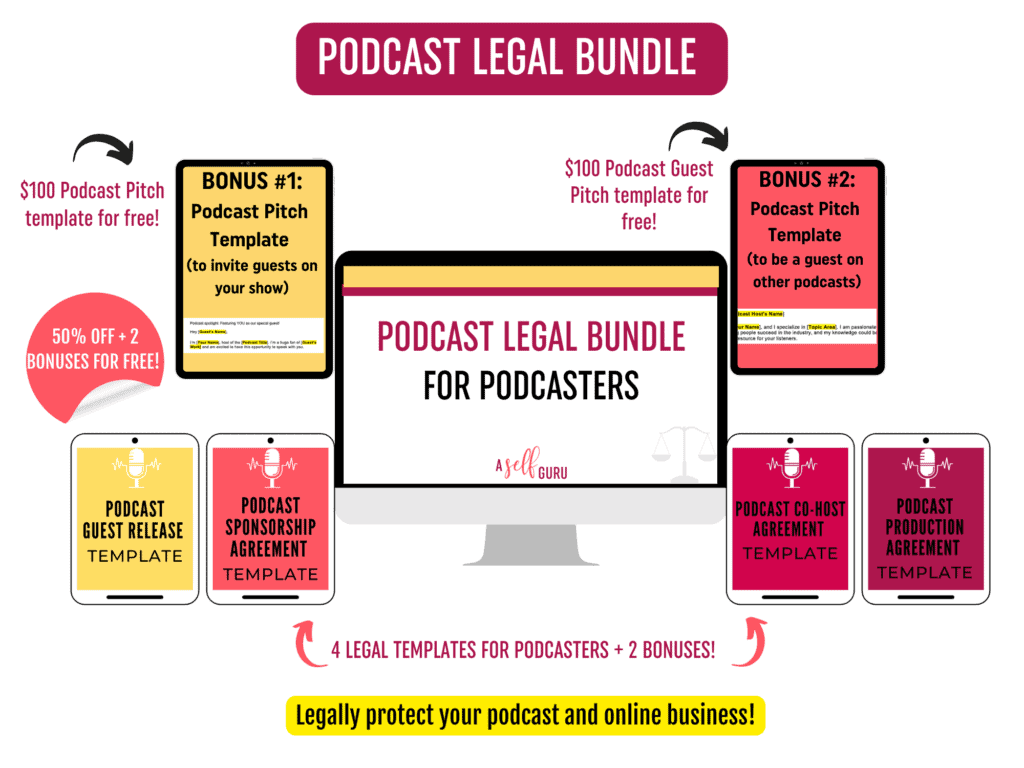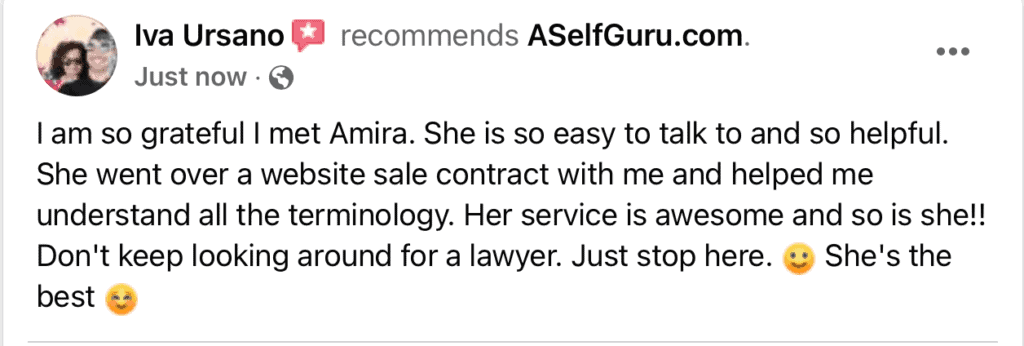As a business lawyer, I am often asked, “What are the legal documents needed to start a business.”
This depends on the type of business you want to start.
Is it an online business or a partnership or a corporation?
Each type of business has its own legal requirements and documents that must be prepared to ensure compliance with applicable laws.
We asked founders and CEOs for their expert advice to help you navigate the essential legal documents needed when starting a business.
From protecting confidential information with an NDA to recording investments with funding documents, here are the top 23 recommendations these leaders shared on important legal documents and why they are needed.
I’ll be sharing my legal expertise below as well but this is not legal advice.
If you need 1:1 legal or business help, feel free to book a consultation with me here.
Table of Contents
Why Legal Documents Matter for Your Business
Legal documents act as the backbone of your business.
They protect your assets, define roles and responsibilities, establish clear agreements, and ensure compliance with laws.
Here’s why this is non-negotiable for any entrepreneur starting a business:
- Avoid costly disputes. Written agreements prevent misunderstandings and mitigate risk.
- Establish credibility. Customers, vendors, and partners are more likely to trust a business with its legal matters in order.
- Ensure compliance. Proper documentation can help you adhere to local, state, and federal regulations.
Neglecting legalities now could lead to expensive complications down the line. But don’t worry; we’ve broken everything down for you.
Also, here are top 10 legal strategies for protecting your IP.
Types of Businesses and Legal Structure
Before we get into the legal documents needed to start a business, let’s talk about the different types of business structures.
There are various types of small businesses, such as sole proprietorships, partnerships, corporations, and limited liability companies (LLCs).
As a business lawyer, let me explain the differences between these types of businesses so you can make an informed decision about which legal structure best suits your needs and goals as a new business owner.
Learn whether employers are liable for workplace injuries to employees or contractors?
Sole Proprietorship
A sole proprietorship is the simplest form of business ownership.
It involves one individual who owns and operates the business.
This means that there is no legal distinction between the owner and the business.
While this may seem like an easy option and a good idea, it also means that the owner is personally responsible for all debts or liabilities of the business.
Partnership
A partnership involves two or more individuals who share ownership and responsibilities for the business.
There are two types of partnerships: general partnerships and limited partnerships.
In a general partnership, all business partners have equal responsibility for managing the business and are personally liable for its debts.
In a limited partnership, there are both general partners (who have full management control and personal liability) and limited partners (who invest in the business but do not participate in management).
Either way, make sure to use this partnership agreement even with family members as business partners.
Trust me, it will ensure a smooth business partnership and avoid legal issues.
Corporation
A corporation is a separate legal entity from its owners.
This means that the shareholders of a corporation are not personally liable for its debts or liabilities.
Corporations (C corporation or S corporation) also have more complex legal requirements, such as creating bylaws and holding regular shareholder meetings.
Limited Liability Company (LLC)
An LLC combines the benefits of a corporation and a partnership.
You will need to file articles of organization with your state.
Like a corporation, its owners are not personally liable for the business debts or liabilities.
An LLC is a separate entity that offers liability protection for your personal assets.
Like a partnership, an LLC allows for pass-through taxation where profits and losses are reported on the individual tax returns of its owners.
It’s not the same as a trade name aka fictitious name (DBA) – learn more about LLC’s and DBAs in this post.
And if your business is an LLC, here are the top 6 legal documents every LLC needs.
The 23 Most Essential Legal Documents Needed to Start a Business
Below are the legal requirements and important documents small business owners need to start a business, depending on the business activities they will conduct.
Also if you ever want to sell your business, here are the legal documents needed to sell a business.
Build Trust and Ensure Compliance With a Privacy Policy
I can’t stress enough the importance of a well-crafted Privacy Policy, especially for online businesses.
This document outlines how you collect, use, and protect customer data.
It’s not just a legal requirement in many jurisdictions; it’s a trust-building tool with your customers.
It demonstrates your commitment to data protection and will help you avoid legal troubles down the road.
Plus, in today’s digital age, customers are more aware of their data rights.
For example, in Canada, compliance with the Personal Information Protection and Electronic Documents Act (PIPEDA) is mandatory for most businesses.
Similarly, in the United States, you also have different privacy laws that you have to ensure compliance with.
A clear Privacy Policy can surely give you a competitive edge.
–Jarret Austin, Founder & CEO, Bankruptcy Canada
Learn how to reduce workers’ compensation claims with proper training.
Privacy Policy Template Written by a Lawyer
If you don’t have a proper privacy policy posted on your website then grab our Privacy Policy template here.
It’s written by a lawyer and business owner who understands the different legal requirements.
You also get free lifetime updates, saving you a lot of legal headaches and money in the long run.
Because you will need additional legal documents to start a business, I highly recommend grabbing our VIP legal bundle here for complete peace of mind and legal protection of your small business.
Watch how our customer Rachel started her online business legally with our VIP legal bundle.
Our privacy policy template clearly shows a business’s commitment to protecting personal data and ensures legal compliance.
Is your privacy policy compliant with these new rules and regulations?
Make Your Website Compliant
If you are starting a business online, you will end up having a website.
This responsibility comes with certain legal obligations such as making your website legally compliant.
You will need to post these 4 legal pages on your website to ensure compliance
- A proper Privacy Policy because it’s legally required
- A Disclaimer to limit your legal liability for the content you publish and avoid lawsuits
- A Terms and Conditions to outline your rules and resolve disputes quickly
- A Website Accessibility Statement found in this ADA legal bundle to make your site accessible to people with disabilities
Grab our VIP legal bundle here to get all the essential legal pages and contract templates needed to start your business.
Failure to follow these legal requirements results in lawsuits, fines, and financial losses that you don’t want to face!
Watch this video to learn more.
Protect Confidential Information With NDA
I would say a non-disclosure agreement is one of the most crucial legal documents that should be considered when starting a business.
It protects your startup’s confidential information by specifying what is considered confidential and how it can be used or disclosed.
NDA or a confidentiality agreement safeguards company information such as product details, financial data, trade secrets, and sales and marketing plans from being released to the public.
Anyone with access to confidential information should sign an NDA, including employees, contractors, vendors, outside professionals, and potential investors.
This agreement prevents competitors from stealing your product or using the information to gain a competitive advantage.
It also ensures that your business ideas and strategies remain exclusive to your team, providing a competitive edge in the market.
I noticed that it increases the trust and credibility of your business.
It shows potential investors or partners that you take the protection of sensitive information seriously and are committed to safeguarding it.
For instance, if you are in talks with a potential investor, an NDA gives them confidence that the idea they are investing in will not be shared with others. It also protects your business during partnerships or collaborations by clearly outlining the expectations and responsibilities of each party regarding confidential information.
–Michael Benoit, Founder, ContractorBond.org
Confidentiality Agreement Template Written by a Lawyer
As part of our VIP legal bundle, an NDA or confidentiality agreement template is one of the legal forms already included for you.
It’s one of the most important legal documents needed to protect your proprietary information and avoid legal disputes.
You can also grab this template individually here.
Also here are 30 more startup legal issues to must avoid.
Clarify Employment Terms With an Employee Contract
You need an employment contract.
This is one of the important legal documents needed to start a business.
Whether you run a small retail shop, a tech startup, or any other type of business, this document outlines the terms of employment for your workers.
It covers things like job responsibilities, salary, benefits, and what happens if someone doesn’t meet their obligations.
Aside from just helping with clarity, having an employment contract protects both you and your employees.
For example, if there’s ever a disagreement about pay or job duties, you can refer back to the contract to see what was agreed upon.
Plus, it can include important clauses about confidentiality or non-compete agreements, which can be vital for protecting your business’s sensitive information.
An employment agreement is not needed if you hire independent contractors. Then you need an Independent contractor agreement here instead.
–Alex Freeburg, Owner, Freeburg Law
Business Formation Documents
Before opening your doors, you’ll need to register your business entity with the appropriate government agency.
-
LLC Operating Agreement or Corporate Bylaws
Decide on a legal structure—sole proprietorship, LLC, S-Corp, or C-Corp.
If you choose an LLC, you’ll need an Operating Agreement to outline ownership details, voting rights, and responsibilities of members.
For corporations, Corporate Bylaws serve the same role.
-
Articles of Incorporation/Organization
This document formalizes your business with the state. It includes your company’s name, purpose, and structure.
Without it, you cannot legally operate or open a bank account.
Pro Tip
Research the pros and cons of different entity types before you start.
For instance, while LLCs offer liability protection, corporations may be better suited for businesses seeking investors.
Book a call with a lawyer here to discuss your business before getting started.
Define Roles With an LLC Operating Agreement
One essential document when starting a business LLC is the operating agreement.
This document is crucial for businesses structured as LLCs because it outlines the governance and operational framework of the company.
It defines the roles and responsibilities of members, the decision-making process, profit-and-loss distribution, and procedures for adding or removing members.
The operating agreement is important for several reasons.
It helps prevent misunderstandings and conflicts among members by clearly detailing how the business will be run.
Secondly, it provides a layer of protection for the members’ personal assets by reinforcing the separation between the business entity and its owners.
It can also enhance the business’s credibility and professionalism in the eyes of investors, lenders, and partners.
Pro Tip: Have a separate business bank account for your LLC to keep the business and personal funds separate.
Ed Hones, Attorney At Law, Hones Law Employment Lawyers PLLC
Ensure Compliance With a Registered Agent Designation
For new entrepreneurs, the Registered Agent Designation is a critical legal document that shouldn’t be overlooked.
This document names someone to receive important legal and tax papers for your business.
This could be you or someone else you designate.
You have to file a form with the secretary of state letting them know who the registered agent is for your new business LLC.
Without it, you might miss crucial deadlines or notices, which can lead to serious problems.
These issues can range from hefty fines to losing your company’s good standing with the state.
In extreme cases, neglecting to have a Registered Agent could even put your personal assets at risk if your business faces legal troubles.
I find it is essential to choose a trustworthy Registered Agent as it’s their job to get and send legal papers quickly.
–Shawn Plummer, CEO, The Annuity Expert
Prevent Disputes With Founders’ Agreement
One of the essential legal documents needed to start a business is the Founders’ Agreement.
This document outlines the roles, responsibilities, and equity ownership of each founder.
It’s crucial because it helps prevent future disputes by clearly defining expectations and procedures for decision-making, conflict resolution, and exit strategies.
By having a comprehensive Founders’ Agreement, entrepreneurs can ensure a solid foundation for their business, promoting smoother operations and protecting the interests of all parties involved.
-Dan Adams, Co-Founder, Arbor Law
Shareholders’ Agreement with Investors
One of the important legal documents needed to start a business is a Shareholders’ Agreement. If you have external investors or shareholders in the business then make sure to use a Shareholders’ Agreement.
A founder of the company could also be a shareholder.
A Shareholders’ Agreement can help maintain control and stability within the business by establishing clear guidelines for the decision-making process, voting rights, profit distribution, and other important things.
Safeguard Ideas With Intellectual Property Agreement
You can’t afford to overlook the Intellectual Property Agreement, as it’s your armor in the cutthroat world of innovation.
If you’ve got this brilliant idea that you’ve poured your heart and soul into developing, without an IP Agreement, it’s like leaving your front door wide open in a neighborhood full of thieves.
These agreements are about defining ownership, setting usage terms, and creating a fortress around your intellectual property rights.
Without these agreements, you’re basically handing your competitors a roadmap to your success, and business plan.
An intellectual property agreement protects you from copycats, gives you leverage in negotiations, and signals to investors that you’re serious about your IP and specific licenses you may assign.
-Jason Smit, CEO, Contentellect
License Agreement to License Content
Talking about intellectual property, there may be times you license content to others.
It could be usage rights to your product, video, and other content.
You would need an intellectual property assignment agreement (aka License Agreement) that allows you to assign legal rights to someone else to use your content.
You still get to outline the terms of this arrangement depending on the kind of business you have.
Learn more about how to license content here and use this license agreement template for this purpose.
Limit Risk With Client-Services Agreement
One of the important legal documents needed to start a business is a client-services agreement—as in, the agreement between the business and the customer explaining the terms.
This is important because, without it, the customer has nearly endless legal recourse.
These are also called terms and conditions.
The client-services agreement can limit risk by “disclaiming liability” and saying that even if things go wrong, the company is not responsible.
In addition, you can include all sorts of terms clearly outlining how to address every aspect of the company-customer relationship.
-David Holt, Healthcare/Business Attorney, Holt Law
Set Rules With Terms of Service
In my experience running a SaaS business, I’ve found that having a Terms of Service (ToS) agreement is a must.
This legal document outlines the rules for using your software and protects your company from potential issues with users.
A good ToS clearly defines what your service can and can’t do, helping to avoid misunderstandings.
It also safeguards your intellectual property by stating that you own the software and its content.
The ToS sets rules for users, which helps maintain the quality of your service and prevents misuse.
By including appropriate disclaimers, you can limit your legal risks.
While a ToS is important, it’s just one part of your legal protection, so always consult a lawyer to ensure you’re fully covered.
-Axel Lavergne, Founder, reviewflowz
Detail Responsibilities With Subcontractor Agreement
As a construction business owner, I can’t stress enough the importance of a well-drafted subcontractor agreement.
This is one of the essential legal documents needed to start a business, especially a contracting business.
It’s one that many new entrepreneurs in our industry often overlook or underestimate.
A comprehensive subcontractor agreement clearly outlines the responsibilities, payment terms, and quality standards expected from both parties.
This level of detail is crucial in preventing misunderstandings and potential disputes down the line.
In the fast-paced world of construction, where multiple parties are often working on the same project, having these expectations in writing can save you from costly delays and legal headaches.
This agreement also protects your business by establishing liability boundaries and ensuring compliance with industry regulations.
It also helps maintain the quality of work across all your projects, which is vital for building a strong reputation in the competitive construction market.
Remember, your subcontractors are an extension of your brand, and this document helps ensure they uphold your standards.
-Tyler Poole, Owner, White Oaks Construction
Obtain EIN for Essential Business Operations
In my experience, one vital legal instrument for startups is the Employer Identification Number (EIN) application.
While not a document in the traditional sense, obtaining an EIN from the IRS is crucial for new businesses.
Without an EIN, you’ll face roadblocks in everything from hiring employees to securing loans.
It’s a small task with big implications for your business’s legal and financial operations—much like a Social Security number for your company.
It is essential for tax purposes and for opening business bank accounts. Don’t overlook it when you’re caught up in the excitement of launching your startup.
-Jeffrey Zhou, CEO & Founder, Fig Loans
Set Expectations With Shareholder Agreement
A professionally drafted and carefully considered shareholder agreement is critical if your business involves initial investors or partners.
This is a step many entrepreneurs miss out on because they either do not want to spend money on a lawyer to draft the agreement, or they feel they know their investors or co-founders well enough to not feel they need one.
The reality is that setting out in a legal document what is required of each partner or investor provides the necessary legal protection, but also provides a platform for there to be discussions around expectations, responsibilities, and accountability from the outset.
This avoids potential disagreements in the future and brings forward any potential misalignment of understanding.
-Chris Percival, Founder & Managing Director, CJPI
Protect Brand With Trademark Registration
When you start a business, coming up with a unique name, brand, or slogan is a big deal, and it’s vital to protect this effort legally by registering a trademark.
This is crucial because trademarking your business name or slogan keeps other companies from copying or stealing your creative ideas, which helps you maintain your unique identity.
Since trademark law can be complicated, I believe it’s wise to hire an attorney who specializes in this area to handle the registration process.
Start with a trademark search first to see if the name you want is available for use and registration.
-Erin Hendricks, President and Owner, Sammy’s Milk
Use Common Contracts in Business
As mentioned above, contracts are essential for any business. These are some of the most important legal documents needed to start any business.
They help prevent disputes with partners, contractors, employees, and other people you work with.
Here are the top 13 contracts you should have handy.
Watch this video to learn about the other 7 most common contracts business owners need.
Define Company Aims With MOA
I would say that a Memorandum of Association (MOA) is one essential legal document required for online business registration.
It defines the company’s aims and serves as a foundational blueprint for its operations.
The MOA also specifies the range of activities the business plans to engage in—whether it’s a tech startup focused on creating innovative software, a retail enterprise selling consumer products, or a service-based company providing consulting.
For instance, if the business is centered on e-commerce, the MOA would clarify that the company is permitted to conduct online sales, manage inventory, and process customer transactions.
Additionally, the MOA contains essential details such as the company’s name, the address of its registered office, and the liability of its members, functioning as a legal agreement between the company and its stakeholders.
In addition to ensuring compliance with legal standards, this document outlines the goals and vision of the company, fostering confidence among investors and partners.
-David Rubie-Todd, Co-Founder & Marketing Head, Sticker It
Secure Property With Lease Agreement
I’d say the lease agreement—especially if your business involves renting a property.
It lays out everything from the rent amount to how long you can stay and any rules about what you can do with the property.
If you’re opening a coffee shop, for example, you need to know if you can set up outdoor seating or make changes to the interior.
A solid lease agreement protects you as a tenant.
It gives you rights and responsibilities, so you’re not left in the dark if something goes wrong. Imagine your landlord suddenly decides to raise the rent or wants you out unexpectedly.
That lease spells out what’s fair and what’s not, so you can focus on running your business instead of worrying about where you’re going to operate from.
-Mike Roberts, Co-Founder, City Creek Mortgage
Legitimize Operation With Business License
One essential legal document you shouldn’t overlook is a Business License.
Now, I know it might not sound as thrilling as designing your first product or launching your website, but trust me, it’s a big deal.
A Business License is important because it legitimizes your operation in the eyes of the law and the local government. It shows that you’re not just playing business; you’re serious and compliant with all local regulations.
Some businesses are required to show their business license.
This document often includes everything from the name of your business to the nature of your work and where you operate.
Without it, you could face fines, penalties, or even be forced to shut down.
When we started our company, securing our Business License was a critical step in establishing our credibility and ensuring we were on solid legal ground.
Plus, it gave us peace of mind knowing we were operating within the law, which allowed us to focus more on growing the business and serving our customers better.
-Chris Bajda, E-commerce Entrepreneur & Managing Partner, Groomsday
Protect Content With Licensing Agreement
You need a solid content-licensing agreement to cover all your bases and protect your business as you start creating websites, marketing content, and other public-facing materials.
Most startups don’t have an in-house creative team, so they rely on licensing content from creators and content libraries for images, videos, ads, and more.
For solid legal protection, you should draft an agreement template that outlines how, where, and for how long you can use the licensed content.
If you’re using someone else’s creative content, this agreement can keep your new business protected.
-Elisa Montanari, Head of Organic Growth, Wrike
Record Investments With Funding Documents
Funding documents are absolutely essential legal documents when starting a business.
Most businesses will need some level of funding to get off the ground and to sustain operations until they become profitable.
Whether the funding comes from your own savings or from external sources, it’s crucial to have legal documents that record and formalize these investments.
For instance, a Loan Agreement is critical.
Most entrepreneurs will need to invest money into their business to cover initial or setup costs.
Your business might need to borrow money from a bank, from yourself, or from another lender.
The loan agreement documents the specifics of the loan, such as the amount borrowed, the interest rate, and the payment due dates.
In some cases, you might also need a Heads of Terms (HoT).
This is a “pre-contract” document created between you and a potential investor.
It outlines the key terms of an agreement before drafting a more detailed contract.
While a HoT is not legally binding, certain terms within it, such as confidentiality/non-disclosure agreements, an obligation to finalize the full terms by a specific date, and clauses about exclusive negotiations and who covers legal or negotiation costs, can be binding.
These documents ensure clarity and protection for both parties, making them indispensable in the early stages of starting a business.
-Eric Croak, CFP, President, Croak Capital
Get Professional Liability Insurance
As you think about the legal documents needed to start a business, one additional thing to keep in mind is business insurance.
There are different types of insurance for businesses. So you need to check and see which one will work best for you.
However, one that should be considered essential is professional liability insurance.
This type of insurance protects businesses from lawsuits related to their services or products.
Depending on the nature of your business, this could include things like malpractice claims, errors and omissions, and negligence.
Having professional liability insurance not only provides financial protection but also gives clients peace of mind when working with your business.
It shows that you take your responsibilities seriously and are prepared for any potential risks.
As a result, it can help attract more clients and foster trust in your brand.
FAQ About Legal Documents for Starting a Business
Below are answers to common questions related to legal documents needed to start a business.
Do I really need all of these documents to start?
Every business has unique needs.
While some documents like an EIN or licenses or website legal pages are mandatory, others (e.g., NDA agreements) depend on your specific situation.
At a minimum, establish contracts and register your business to protect yourself legally.
Can I handle this without a lawyer?
While you can manage routine paperwork like filing for an EIN or using online templates, consulting a small business attorney is invaluable to avoid legal issues later.
What are the 5 legal forms of business?
The most common legal forms of business are sole proprietorship, partnership, corporation, S corporation, and limited liability company (LLC).
Each has its pros and cons in terms of taxes, liability protection, and management structure.
Consult a lawyer or accountant to determine the best fit for your business goals.
How often should I review my legal documents?
As a general rule of thumb, it’s recommended to review and update your legal documents annually or whenever there is a significant change in your business operations or structure.
This ensures that you are operating within the current legal framework and protects your business from potential disputes or penalties.
It’s also a good idea to have an attorney periodically review your documents.
If you need your contracts reviewed, schedule that service with me here.
Can I find affordable templates for legal documents?
Absolutely!
We offer a library of affordable, customizable legal templates here.
These are a great alternative to hiring a full-time lawyer in the beginning because these templates are written by a lawyer, so you have peace of mind knowing you are getting sound legal protection.
Final Thoughts on Legal Documents Needed to Start a Business
Wow, we discussed A LOT of regulatory requirements and legal documents needed to start a business.
Make sure to save this post for future reference.
If you need legal services or legal templates for the above documents, grab them from our store here.
In conclusion, starting a business requires several legal documents and contracts to be in place.
These documents not only protect you as a business owner but also establish clear guidelines for the business’s operation.
It is important to carefully review and understand each document before signing, as it has long-term implications for your business’s success.
RELATED BLOG POSTS ON WHAT LEGAL DOCUMENTS ARE NEEDED TO START A BUSINESS
In addition to learning about the legal documents needed to start a business, you should join our Facebook group for more support.
My legal tips page has blog posts and other valuable legal tips for entrepreneurs.
You should also check these other online resources too:
15 Legal Tips for Startups to Avoid Trouble
13 Best Contracts for Creatives (Plus Templates)
11 Key Contract Clauses You Should Know in Business
18 Critical Questions to Ask a Lawyer When Starting a Business
Why 50+ Entrepreneurs Don’t Trust Free Legal Templates to Protect Their Business
Should I Form an LLC for a Blog? (Lawyer Tips)
Lawyer’s Guide to ADA Website Compliance + WCAG Checklist
16 DIY Legal Document Templates for All Entrepreneurs
VISIT THIS FREEBIES PAGE TO GET 5 AWESOME FREE BUSINESS, BLOGGING AND LEGAL TIPS!
Below are some more helpful blog posts, legal tips, tools, and resources that you should check out next:
Outrank your competition and enhance your content creation
Beautiful Pinterest templates to increase traffic to your blog!
What’s an LLC and when to form one?
How to Legally Protect Your Book (with Proper Copyright Notice and Disclaimer Examples)
AI writing tool to write blog posts 10x faster, create social media content, videos, and any kind of content to save time in business
This SEO tool makes sure your blog posts rank on the first page of Google!
Manage your accounting effortlessly with this amazing tool.
MORE TOOLS TO GROW YOUR ONLINE BUSINESS
TubeBuddy to grow your YouTube channel, and this is another great tool for YouTube SEO.
Free SEO Masterclass to learn how to optimize your blog posts for SEO to rank on Google. You can also buy this awesome bundle of ebooks instead if you prefer ebooks over video training.
Best accounting software to manage profit and loss and more!
Best payroll service (super affordable too)
A great all-in-one business platform for hosting your course, email communications, sales pages, and more!
This paraphrasing tool to create original work for the client
A professional theme for your website
Millionaire blogger’s secrets here and tons of valuable resources.
How to start your blogging business and make money online
The Best Freelance Writing Contract Template (for writers and clients)
Guest Blogger Agreement to publish guest posts on your website legally and avoid any copyright infringement, Media release agreement to be able to use other people’s photos, videos, audio, and any other content legally, Privacy policy on your website to ensure your blog’s legal compliance, Disclaimer to limit your legal liability, Terms and Conditions to set your blog rules and regulations! Get all of these templates at a discounted rate in one of my best-selling VIP legal bundle here.





